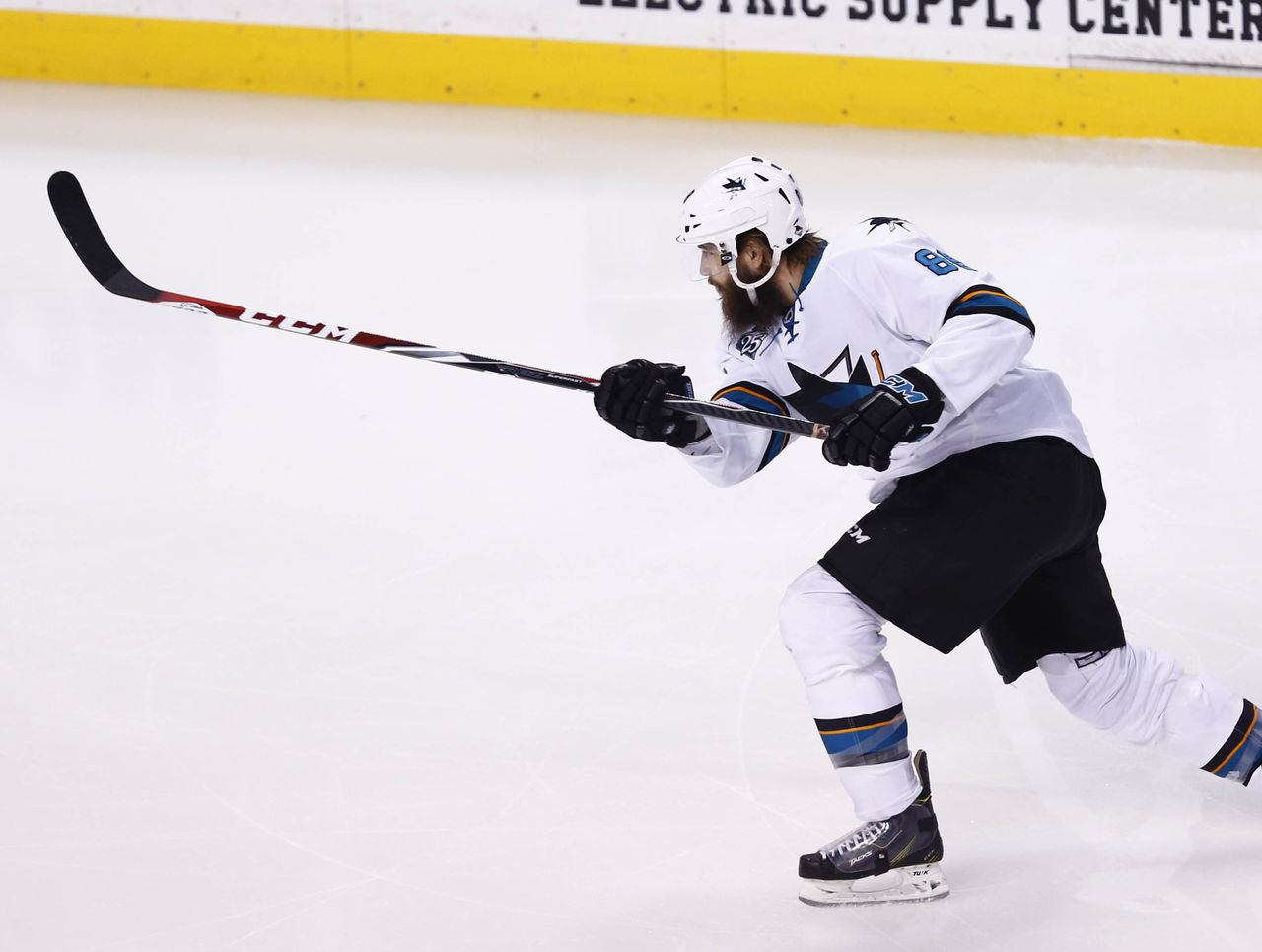DFS: Fact or Fiction - Brent Burns, Shooting Star
A familiar name sits atop the NHL's shot leaderboard: Washington winger Alex Ovechkin, who has led the league each of the last three seasons.
Just behind Ovechkin, though, is San Jose defenseman Brent Burns:
| Player | Total shots | Games played | Shots per game | Rank |
|---|---|---|---|---|
| Alex Ovechkin | 132 | 25 | 5.28 | 1 |
| Brent Burns | 126 | 27 | 4.67 | 2 |
| Taylor Hall | 120 | 28 | 4.29 | 3 |
| Dustin Byfuglien | 93 | 28 | 3.32 | 12 |
In terms of shots per game, Burns bests Hall, and averages over one shot more than the next highest-ranking defenseman, Winnipeg's Byfuglien - like Burns, a converted forward.
Directly comparing Burns to the gold standard in shooting propensity, Ovechkin, yields the following results.
| Year | Player | Shots per game | Player | Shots per game |
|---|---|---|---|---|
| 14-15 | Burns | 2.99 | Ovechkin | 4.88 |
| 13-14 | Burns | 3.55 | Ovechkin | 4.95 |
| 12-13 | Burns | 2.7 | Ovechkin | 4.58 |
Ovechkin's shooting figures have been remarkably consistent over the years, and this season, he's been above his recent averages. Burns spent 2012-13 and 2013-14 as a forward before moving back to defense in 2014-15 and has stayed there since.
Burns is averaging almost a shot and a half more per game compared to last season, due in part to increased playing time. Burns is averaging a career-high 26:40 worth of ice time, up from last year's 23:57. He's also averaging 4:01 per game of power play time - tops on his team, though behind four other defensemen overall - and well ahead of last season's average of 3:24.

Shots aren't everything, however, for a defenseman's fantasy value. Last season, Ottawa's Erik Karlsson led all blueliners with 292 shots in 82 games, an average of 3.56 a night. So far in 2015-16, though, Karlsson is only managing 2.5 shots per game, well below his career average of 2.95.
Still, the two-time Norris Trophy winner ranks fourth overall in scoring with 32 points in 28 games. Dallas' John Klingberg shoots just under two times per game and has managed 30 points in 28 contests. Burns ranks third in defenseman scoring, with 10 goals and 12 assists, but his significantly higher shot totals help smooth over the gap between Burns and those ahead of him.
Burns leads San Jose in power-play shots by a wide margin (39 to Patrick Marleau's 22 and Joe Pavelski's 20), so the team's plan of attack appears to be centered around getting the puck to Burns at the point and letting him blast away. Unsurprisingly, Ovechkin ranks first overall with 49 shots with the man advantage, with Burns tied for second with Dallas' Tyler Seguin.
Last season, Burns fired 70 power-play shots on goal in 82 games, ranking second on the team behind Pavelski's 91.
It's worth noting that Burns is a team-worst -11, so the biggest impediment to him keeping this shooting pace up may be a possible reduction in his minutes at even strength. Burns' willingness to shoot certainly isn't a mirage, and it helps to justify shelling out for the mountain man-looking defender, who's regularly among the highest-priced at his position in most DFS games.